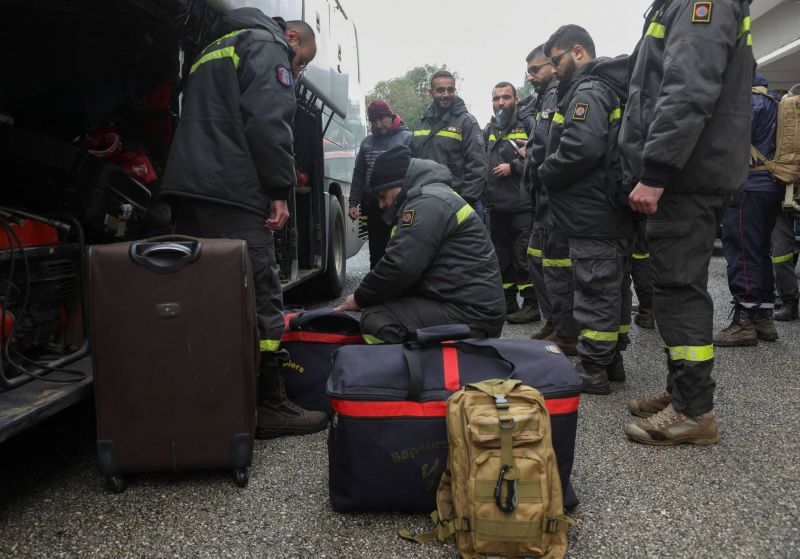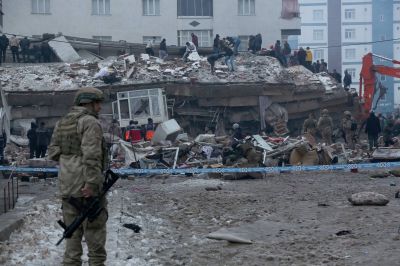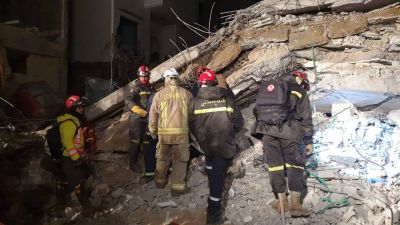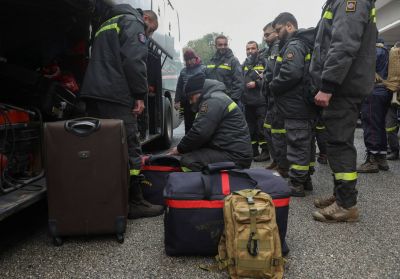
Lebanese rescue workers prepare to leave, on Feb. 7, 20223 in Beirut, for Syria and Turkey to help with relief efforts after the deadly earthquake. (CreditL Mohamed Azakir/Reuter)
BEIRUT — After a 4.3 magnitude earthquake shook the Lebanese-Syrian border Wednesday night, many people in Lebanon began to panic.
Lebanon experienced heavy tremors early Monday morning from the massive earthquake that killed over 17,000 people in Turkey and Syria, but Samir Zaatiti, geologist and hydrogeologist, explains why there's no need to worry about the latest tremors.
According to Zaatiti, Monday's violent 7.8 magnitude earthquake was not caused by a single seismic line— the Levant fault line, which extends from Anatolia to the Dead Sea, through Lebanon. The Lebanese segment of this line is named Yammouneh.
Rather, the exceptional force of Monday's quake was caused by violent interaction between three seismic lines: the Arabian plate, the Euro-Asian plate (partly in Turkey) and the Mediterranean plate, which is the least active of the three.
"The tremor felt Wednesday night by the Lebanese remains within the norms of tremors that occur in Lebanon," Zaatiti told L'Orient-Le Jour. According to him, the aftershocks of Monday's dramatic episode lose strength as time passes, though they remain unpredictable.
Interviewed Wednesday evening by L'Orient-Le Jour, the director of the National Center for Geophysics, Marlene Brax, said that the epicenter of Wednesday's earthquake was located 5 kilometers south of Hermel, in northeastern Lebanon, near the Syrian border.
In a statement to local media, Brax said the seismic activity recorded in Lebanon lately "is not normal."
"We have recorded nine earthquakes that were not aftershocks, four of which were felt by the population. This activity is not normal. It doesn't mean that a big earthquake will definitely happen, but this activity is abnormal," she said.
Her words caused some concern among the Lebanese population.
In Tripoli, in North Lebanon, one of the poorest areas in the country, residents fled their houses on Wednesday, fearing collapses.
According to L'Orient Today's correspondent in South Lebanon, Wednesday night's tremor was felt in the city of Saida. Residents of the North also felt the quake, according to L'Orient Today's correspondent in the North.
Several people living in Beirut, Mount Lebanon and Baalbek confirmed that they felt the tremor as well.



